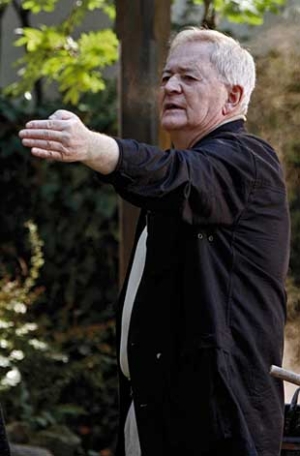Gallery
All Pictures (2)Biography
István Szabó, who later became one of his country's most renowned directors with an international reputation, was born in Budapest, Hungary, on February 18, 1938. After working as a radio reporter, he began studying directing at the Budapest University of Theatre and Cinematography in 1956. His short film "Koncert", made during his studies, brought him international attention in 1961 and was nominated for an Oscar. Three years later, after several award-winning short films, "Álmodozások kora" ("Age of Illusions") premiered at Locarno, marking Szabó's debut as a feature film director. As in many of his later films, he also wrote the screenplay for his debut, and he thematized the interweaving of dream and reality and incorporated surreal elements.
After enjoying success in Hungary in the 1960s and 1970s with his hitherto rather unconventional films, Szabó began to work increasingly in Western Europe in 1979, with most of his films being international co-productions and shot in various languages. He laid the foundation for his internationally financed films in 1980 with the German production "Der grüne Vogel" ("The Green Bird"), starring Hannelore Elsner in a love story that begins during the Cold War in 1968 at the height of European student unrest.
The German-Hungarian co-production "Mephisto" was made in 1980/81 and marked the international breakthrough for director Szabó and leading actor Klaus Maria Brandauer. The film won several international awards, including the 1982 Academy Award for Best Foreign Language Film. Further successful collaborations with Brandauer followed in the productions "Oberst Redl" ("Colonel Redl", DE AT HU 1984) and "Hanussen" (DE AT HU 1988), the latter produced on the German side by CCC-Film under Artur Brauner and by public broadcaster ZDF. Both "Oberst Redl" and "Hanussen" were also nominated for an Oscar for Best Foreign Language Film as well as for a Golden Globe and won several other awards.
His subsequent films "Meeting Venus" (GB US JP 1991), which reflects on Europe after the collapse of communism in the microcosm of an opera production, "Sunshine" (HU DE CA AT FR GB US 1999), which follows the fate of a Jewish family through the 20th century, starring Ralph Fiennes, "Taking Sides – Der Fall Furtwängler" (FR GB DE AT 2001), about the famous conductor and his proximity to the Nazi regime, and "Being Julia" (CA HU US GB 2004), set in the London theater scene and starring Annette Bening, all received good to very good reviews and several nominations for film awards. Like the trilogy with Brandauer, these films too deal with the themes of power and seduction and the tense relationship between society and the individual.
In early 2006, Szabó hit the headlines after admitting, under public pressure, to having worked as an informer for the Hungarian secret service between 1957 and 1963.
István Szabó has also distinguished himself over the years as a director of various opera productions, including "Tannhäuser" at the Opéra de Paris, "Boris Godunov" at the Leipzig Opera and "Il Trovatore" at the Vienna State Opera. He has also taught as a guest lecturer at various film schools in London, Vienna and Berlin.
The Hungarian production "Rokonok" (2006), about a prosecutor general who falls prey to corruption, was shown only in its country of origin and at a few festivals. It was not until six years later that Szabó presented his next feature film: "Hinter der Tür" ("The Door", 2012), starring Martina Gedeck and Helen Mirren, was a German-Hungarian production about the unusual relationship between a writer and her maid.
In 2020, more than 30 years after their last collaboration, Szabó reteamed with Klaus Maria Brandauer: in "Zárójelentés" ("Final Report"), also a Hungarian production, which was released in Hungarian cinemas in the spring of 2020, Brandauer portrayed a renowned doctor who returns to his home village and encounters a quagmire of corruption and intrigue.
